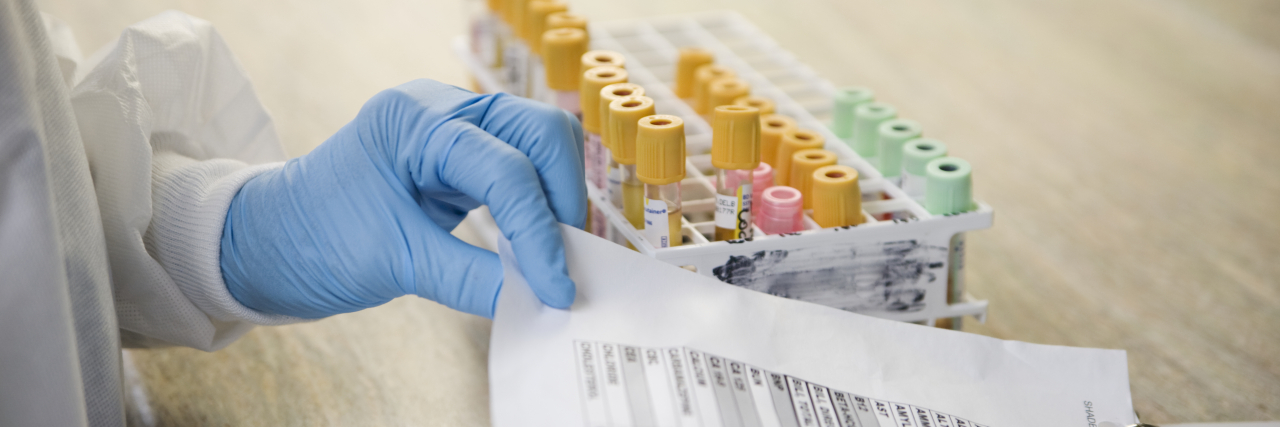How the Pandemic Put Me in Diagnosis Limbo
The first time I saw a cardiologist was in the autumn of 2019. I was terrified. Every doctor and specialist I had seen prior told me they couldn’t find anything going on with me. They would say maybe I was sick; after all, most people don’t go and buy a wheelchair out of pocket for funsies. But they certainly couldn’t prove it.
When I was called from the waiting room, there was an onslaught of preliminary testing, each with a different human. I wasn’t warned or given a heads up. That’s not unusual, but it never helps. The tests ended and we waited anxiously for the cardiologist to arrive. She asked me a few questions, took the history she needed, and then absolutely shocked me when she said they found something. “We saw an anomaly during one of the tests.” An anomaly! That means something out of the ordinary! Something different than you expected! I could have leaped up and hugged her. She was handing me the potential beginnings of a diagnosis. She issued a 24-hour EKG test and we scheduled an appointment to follow up on that data.
The second and last time I’ve seen my cardiologist was in November 2019. She confirmed that they had discovered a blood pressure anomaly through the EKG test. She said a big word I didn’t recognize that was probably my official diagnosis. Between the dissociation that I always get in medical settings and my relief of being validated, I didn’t catch what it was. She mentioned medications to help manage my blood pressure, but I was unsure. I told her that I was in the middle of trying to access mental health support for conditions like anxiety and PTSD, which can also impact blood pressure, and I’d prefer to try her medications after successfully accessing mental health support. Surprisingly, she agreed with me and said we would see each other again in the Spring of 2020 to reassess the option of medication. I was also anticipating having the opportunity to have her write down the big word, and ask her some more in-depth questions about what to do next. Of course, none of that ever happened.
By April 2020, when I would have expected a callback from the cardiologist, lockdowns were spreading across the country faster than COVID itself. When the information started coming out that one of the most common long-term impacts of COVID was heart damage, I knew I wasn’t getting my appointment anytime soon. When the lockdowns continued, the waves kept surging, and now with restrictions ending regardless of where cases are at, I’ve lost hope that I will be getting an appointment in the foreseeable future.
Recently, I asked my support system to help me find out if I was even still on the referral list. For several weeks, they called and only got an answering machine. Then a few weeks ago, they got through. Not surprisingly, my non-urgent pre-COVID file had gotten buried somewhere and they had to dig it up and re-prioritize it. I can’t imagine how overwhelmed they must be. I truly have so much empathy and compassion for what healthcare workers are facing. And the way things are going, I won’t be surprised if a year from now I have to repeat the same process to get my file back onto the pile of potential appointments.
I know they’re doing their best with the resources they have. But I still have a lot of feelings about it. I feel guilty that I didn’t jump on the opportunity to try blood pressure medications in 2019, although if they hadn’t worked or made things worse, I would still have been left on my own to decide what to do next. I feel ashamed that I still don’t know the official name of my diagnosis, or when I will find out. I feel hopeless about my country’s ability to manage the public’s health needs. I feel empathy and compassion for the workers who cope with a broken and overwhelmed healthcare system all the time. I feel gratitude that my personal practices and at-home treatments have protected me from flares and relapses in my mobility. I feel infuriated that I have to rely on my GP who understands nothing about my conditions to provide information about my conditions to agencies that require that information while the cardiologist is unavailable to me.
I feel trapped living under a government that tortures both those who require medical care and those who provide it, breeding a toxic healthcare environment. And sometimes I feel helpless, because there’s nothing I can do to improve it. The things I can do are take care of myself to the best of my ability, continue to share my experiences, and wait by the phone, just in case.
Getty image by Dana Neely.

